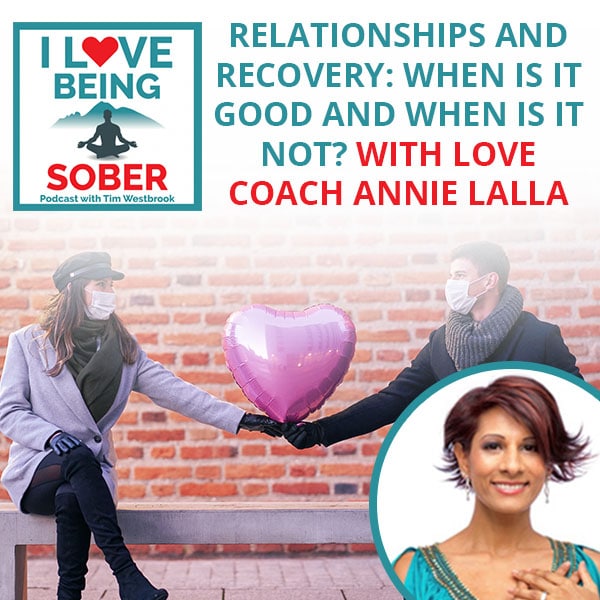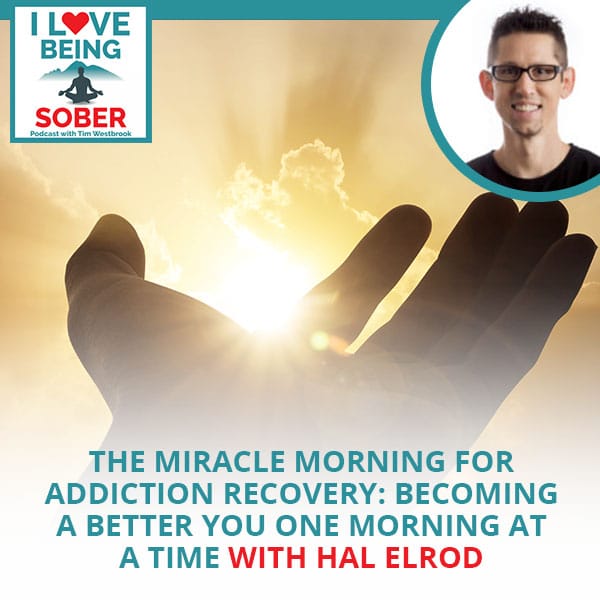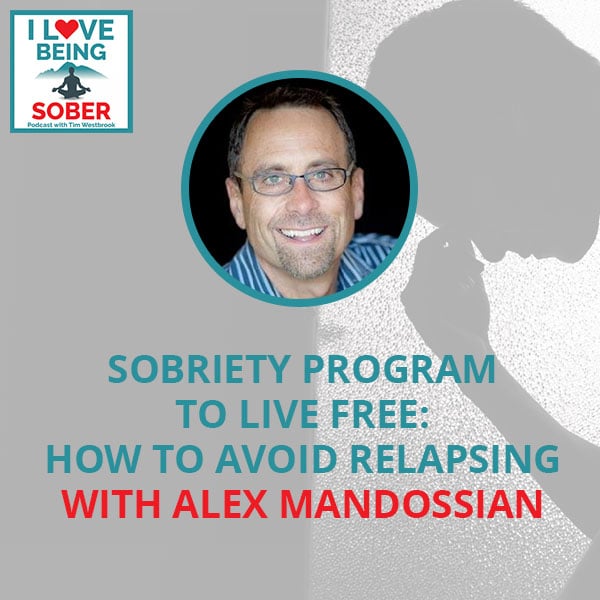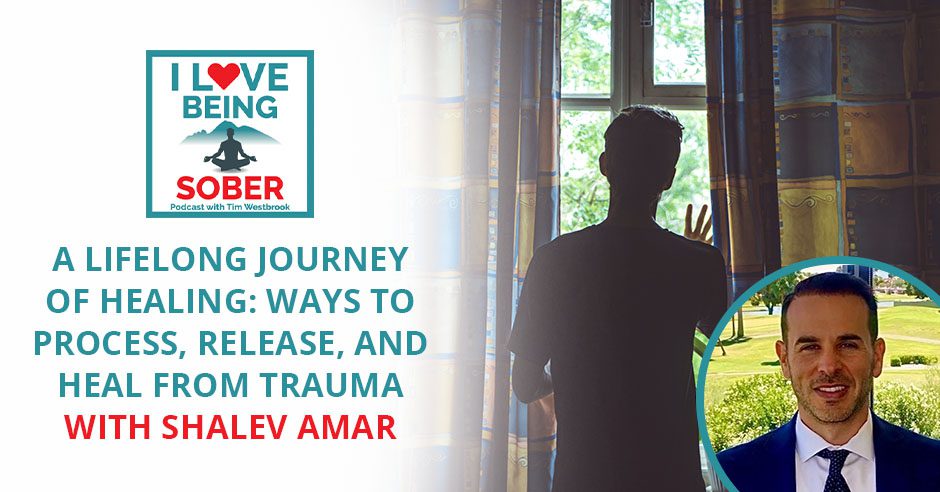
Trauma does not appear out of thin air. It comes from deep-seated issues and experiences that start from our childhood. Likewise, healing from trauma does not happen overnight. In this episode, Tim Westbrook is joined by Shalev Amar, also known as Freedom From Trauma on YouTube. Shalev works as a lawyer in his own Amar Law Group but has dedicated most of his life to learning about trauma and finding ways to overcome it. As someone who’s undergone trauma his whole life, he gives personal advice on how he is working to overcome them through various methods. Healing is a lifelong journey, and how you cope matters. Shalev has made it his mission to educate and inform people on healthy methods to do so. Tune in to learn all about them and see what might work for you.
—
Watch the episode here:
Listen to the podcast here:
A Lifelong Journey Of Healing: Ways to Process, Release, And Heal From Trauma With Shalev Amar
I’m here with Shalev Amar. Shalev has been an Attorney for over seventeen years and has spent thousands of hours over the years studying trauma, psychology, and healing methods. He’s passionate about this topic because his family has suffered through generational cycles of trauma and he is committed to breaking that cycle. It is his mission to teach people how to overcome their trauma so that they don’t suffer and pass it on. Shalev and I are going to talk about ways to process release and heal trauma.
—
Shalev, welcome to the show.
[bctt tweet=”Trauma is a lifelong process to heal.” via=”no”]Thank you, Tim. Thanks for having me on.
I’m grateful to have you here. Shalev, you’re an attorney and you’ve been an attorney for over many years. You own a successful law firm here in Scottsdale. What gives you the right to claim you are an expert on ways to process release and heal from trauma?
Life is the best teacher. I am a licensed attorney. I’ve been an attorney for many years. I’ve spent more time studying trauma, psychology, neurology, anything to do with processing and releasing trauma. I have spent more time on that than I have studying the law for whatever that’s worth.
Why is that?
The reason is that I was gripped in the hell of despair of severe generalized anxiety and massive amounts of unresolved childhood trauma that caused me all kinds of problems in my life, failed relationships, lost opportunities, and suffering. Trauma is the root of most addictions.
Many people believe that trauma is the root of all addictions. You’ve been an attorney for many years and you’ve been studying trauma, psychology, and how to get through your trauma. How long have you been dealing with this trauma and this anxiety? How has it affected you?
Basically, my whole life. The more I realized about trauma, I’m like, “Wow.” I’ve been traumatized at every step of the process starting in utero. My mother had a stressful pregnancy. Gabor Maté talks about that trauma symptoms can start in utero. What happens is the mom’s stress hormones and neurochemicals go into the baby. My mom was in a difficult relationship with my father. She was unhappy. She had to drop out of med school. She was stressed immensely and depressed during her pregnancy. Also, a traumatic birth. My mom was in labor for 48 hours. She had no pain medication. While I was stuck in the birth canal, there were all kinds of stress chemicals and hormones that I was flooded with that made me have an overactive nervous system.
In early childhood, I was taken away from my parents at a year old and put in these children’s houses in the kibbutz where I grew up. That’s like a communal farming town in Israel. They don’t do this anymore because they realized how damaging it was to children but I was part of this weird social experiment. My earliest memory is running around in the middle of the night trying to get home feeling terrified and abandoned that I was left alone to die. As an adult, I know that wasn’t the case. The problem is that caused deep subconscious wiring.
On top of that, my father had severe BPD, which is Borderline Personality Disorder. My grandfather was a Holocaust survivor, a raging alcoholic, and badly traumatized my father. My father unknowingly passed that trauma to me through his behavior. He was a dry drunk, all of the symptoms of an alcoholic without drinking. He was a rageaholic. He would fly into rages all the time. He had little or no provocation. He hurt people. He was traumatized as well. That’s the long and short of it. Lots of ways that I was traumatized.
[bctt tweet=”Nutrition is critical. You can’t be eating a bunch of garbage and think that you’re going to feel okay emotionally. ” via=”no”]This might back up a little bit. What specific incident inspired you to be passionate about teaching people how to heal from trauma? Where were you? What happened? Who were you with?
I’ve been suffering most of my life, especially most of my adult life. What brought things to head is I went through a painful breakup with the mother of my child. I took them really hard. The reason is that the breakups would trigger my abandonment issues from childhood. This breakup was bad. I wouldn’t say my ex had BPD but she had aspects of it.
BPD is a Borderline Personality Disorder on a spectrum.
It’s a matter of degree. There were times when she’s having road rages. She would be nasty to me and that triggered my childhood wounding. At the end of that relationship, I gave everything that I could and I felt depleted and drained because nothing that I did worked and nothing was good enough. The breakup was very painful. It was the worst of all the breakups that I’ve gone through, especially because I thought I would spend my life with her. We had a child together. I was having constant panic attacks and also lots of rumination about what I went through in the relationship.
I reached an enough is enough point and said, “I’ve had it. I’m going to do whatever it takes to heal myself. I’m not going to keep suffering through my life, keep having failed relationships, keep having panic attacks, and severe anxiety mixed in with depression.” Frankly, I was sick and tired of suffering. Out of necessity, I decided to use my skills as an attorney to study trauma, psychology, and healing methods the same way that I studied in law school to become a lawyer, and I became obsessed with it.
In learning about it for yourself, you also decided that you wanted to teach others. How did that come about?
The more I learned about trauma, the more I started to see it everywhere. Many people are suffering. Again, it’s on a spectrum. I would apply the 80/20 rule. I haven’t done any double-blind studies. It’s anecdotal, but from what I see, 80% of the public is at least somewhat traumatized and a large portion of that 80% is severely traumatized. The 20% had that ideal-like childhood to leave it to Beaver Home. It’s great because they’re happy and they had a lot of love and support growing up. At least in my mind, that’s not 80% of people.

Healing From Trauma: There are many ways that people self-medicate just to get some relief from the pain, escape the pain, or have a distraction from the pain.
Especially in early childhood, we are much more prone to be traumatized because our brains are not fully developed. We’re like sponges and there can be some deep neural wiring in our early childhood. Not just that, we don’t understand. If a parent is abusing us, we don’t understand that our parent is hurt and traumatized themselves. We feel like, “I’m unworthy. I’m bad. I’m unlovable. Otherwise, why would I be getting abused like this?” You blame yourself and then it causes deep wounds and loss of self-esteem.
It makes me think about The Four Agreements. The first agreement is to be impeccable with your word. The second agreement is to not take things personally. In The Four Agreements, they talked about how we’re domesticated. We’re domesticated by our parents and they are doing things that traumatize us. That’s part of the domestication process, which we carry with us moving forward.
Those early years, 0 to 7, are where we’re the most domesticated, most socially programmed, and most affected by abuse. That’s why a lot of people, even in adulthood, don’t even have necessarily specific memories, especially if they’re kinesthetic. Meaning that they feel more rather than see or hear as their primary mode of operating in the world. They don’t feel good. They feel anxious and depressed. A lot of people self-medicate to escape the pain. Self-medicating, oftentimes, is with drugs or alcohol. It can be with lots of things. It can be with sex, gambling, love addiction, or being in unhealthy codependent relationships. There are lots of ways that people self-medicate to get some relief from the pain, escape the pain, or have a distraction from the pain and some temporary pleasure mixed with more pain, unfortunately, by engaging in those behaviors.
You said that you see trauma everywhere. You started studying it and studying the psychology of it. What does that look like for you? I don’t look for it, so I’m wondering. When you say you see it everywhere, what does that mean?
If somebody is badly traumatized, you can even see it in their face and their demeanor. Their body language can be hunched over or it can be tight like ready for a fight, flight, or freeze. If you walk around a shopping center, take a look at people’s faces. You’re not seeing a lot of smiles and happiness. You’re seeing a lot of downtrodden looks. I believe this because people are walking around with all kinds of unresolved trauma. Not just that, look how people get worked up over politics and flying the rages about it. That is largely due to people being traumatized and feeling that their values and beliefs are under attack by the other side. That can trigger trauma, fight, flight, or freeze.
If you look at how people even deal with consumer situations like if they have a complaint about a product and they fly off the handle, that’s because their trauma is triggered. If you look at the divorce rate, do you think people would be fighting as much as they are and be getting divorced at the level that they are? That’s not even talking about relationships where people don’t get divorced but they’re unhappy. Do you think that people would be yelling at each other and being nasty to each other if there wasn’t trauma being triggered?
It’s going back to Don Miguel Ruiz. He had another book called The Mastery of Love, which is a great book and a great companion to The Four Agreements. He talks about how we’re all walking around with emotional wounds covering our entire body, so to speak. The metaphor he uses is to imagine your bodies covered in open gaping wounds. We want love but the problem is anytime somebody touches that wound, it causes excruciating pain. That’s what is constantly happening with people emotionally.
Happy, well-adjusted, non-traumatized people are not going to be flying off the handle if somebody cuts them off in traffic. The more I’ve studied trauma, the more I see it everywhere. Much of unhappiness is because people are traumatized. People wouldn’t be getting worked up with the internet trolls, they wouldn’t be getting into road rage incidents, and they wouldn’t be yelling at customer service reps if they weren’t filled with unresolved trauma.
[bctt tweet=”If you don’t prioritize your healing, everything else falls apart.” via=”no”]I’ve heard you talk about the different types of trauma in the past. Tell me about it.
There are two main types of trauma. One is the big T trauma and then the small t trauma. The big T trauma does seem to be a lot of awareness of, for example, PTSD, after being involved in a war, seeing your buddies blown up, the death of someone you’re close to, having a friend who is murdered in front of you or commit suicide and you walk in on the dead body, being raped or molested. Also, being physically assaulted. Those are all big T trauma.
What’s less commonly understood is the small t trauma. Those are more like small cuts, emotional wounds, but they can accumulate over time. Things like neglect, being yelled at by a parent or a caregiver, being told that you’re worthless, and being emotionally abused. Not just that, let’s say feeling excluded like racism in any event. What people don’t realize is that small t trauma can accumulate over time. If it’s repeated day-after-day, month-after-month, year-after-year, that small t trauma can become as severe as the big T trauma as far as symptoms that are experienced.
There is a lack of awareness about that, unfortunately. That’s why way more people are traumatized than they even realize themselves because they think like, “Nobody’s ever beaten me up. I was never molested. Why do I feel this way?” What was your childhood like? Were you bullied? Were your parents nasty to you? Were you yelled at all the time? Where you made the black sheep of your family? All those things can be severely traumatizing over time.
What happens when the little t trauma accumulates?
What happens is it’s as severe as the big T trauma and it can cause PTSD, Post-Traumatic Stress Disorder. PTSD from major trauma, that’s normal PTSD. PTSD from smaller types of repeated trauma is called complex PTSD. The symptoms are the same. It’s just the genesis is different. As far as symptoms, it’s being trapped in a fight, flight, or freeze, which is an emotional hell. Feeling emotionally reactive, being easily triggered, having insomnia, difficulty breathing, panic attacks, severe anxiety, and depression, all of those things can be caused by accumulated small t trauma.
Tell me about the recommended process to heal from big T trauma or small t trauma.
The process is exactly the same. Unfortunately, the way people deal with any kind of trauma, whether it be small t or big T trauma, is they self-medicate with drugs, alcohol, sex, gambling, shopping, you name it. That’s numbing symptoms. It never resolves the underlying trauma. To process heal and release the trauma, there are various methods and the key is to be open-minded and be willing to try things. What works amazing for one person may work for another person but not as well. If you have severe trauma, it’s highly unlikely that one method will work. You need to stack methods and attack the problem from every angle that you can.
Over the years, I’ve tried many methods. I’ve had to beat my head against the wall trying things that didn’t work for me. Over the years, I have found things that worked well. Even though some things work better than others, the methods that I’ve found would work for anybody at varying degrees, of course. That’s why I recommend to your readers that if they want to try some of these methods, go through some trial and error, see how it makes you feel, see how it works for you. The methods that work best for you, double down and be consistent over time with those methods. Over time, it will heal you more and more.
What are some of these methods? Trauma Release Exercises or TRE. Those are exercises that fatigue your psoas muscles. What that does is it causes involuntary shaking. If you see somebody after a car accident, usually they’re on the side of the road, they might be hugging themselves and shaking. That’s a good thing. That’s your body’s natural way of releasing trauma. If an animal is attacked, you’ll see the same thing. Afterward, they’ll shake it out. That’s a way of releasing trauma from your body and your nervous system.
Another method is something called Network Chiropractic Treatments. The name is deceptive because they don’t do adjustments, maybe some minor ones. It’s more pressure point therapy and that helps balance your bio-energetic field and your nervous system. It also helps you process and release trauma. The way I would describe it is if you go through a network chiro session at a good practitioner, you feel like you’ve meditated for an hour combined with an hour of massage. Your body, mind, and spirit all feel relaxed.
Plant medicines can be effective, but they’re not for everyone. For people with certain medical conditions, bipolar for example or certain other medical conditions, it might not be a good idea because the plant medicines can cause psychosis in some people and make the issues worse. I never recommend that anybody do that without conferring with a doctor first. Also, the fact that plant medicines are still illegal in many places. I’m not telling anybody to break the law. If you are interested in plant medicines, I recommend conferring with a doctor and also going somewhere where it’s legal or becoming part of a government-authorized study that allows you to use these substances and not get in trouble. Plant medicines can be effective in both raising awareness, helping to process, and release trauma.

Healing From Trauma: Your emotions are like magnets that attract things into your life. If inside you’re an emotional wreck and dealing with all kinds of pain, it’s going to attract more pain into your life.
The most effective method that I’ve ever found is something called Kambo. It’s an animal medicine from the Amazon. It is legal as far as I know. Hopefully, it stays that way. What happens is you go to a shaman or a healer and they will burn small little holes into your skin. They’re called gates. They’ll rub the Kambo on your skin and you drink a couple of liters of water. Pretty quickly, you start feeling flushed, hot, you get a rapid heartbeat, you feel nauseous, and you start to purge or vomit violently. It’s very extreme. It’s also the most physically demanding trauma release method that I’ve ever done. You purge anywhere from 10 to 30 minutes. I’m talking about projectile vomit. Sometimes you can purge too.
After doing Kambo for a couple of days, you’re out of it. The third day, you wake up and whatever your trauma level is, let’s say it’s an 8 or 9, all of a sudden, it’s cut in half. It’s incredible. It’s the closest thing that I found to a magic pill. Unlike a magic pill, you’re going to have to pay the price to go through an arduous physical experience. In Kambo, you need to be healthy enough to do it if you’re considering it. You must confer with a doctor to see if it’s even something feasible for you. It’s something difficult to go through. It’s not the first thing I would recommend to someone. To anyone who’s been doing the work for a while, tried various methods, and feel that they’re in a good place, Kambo can get you to the next level. It doesn’t replace other methods and daily practices. You still have to do the work. There is no magic pill. It’s a lifelong process to heal.
When you say do the work, what does that mean?
It means lots of things. It means those other trauma-release methods. I’ll add a couple more. Journaling is a good way to process trauma because writing is a psychoneural activity and it helps you get everything out on paper. What I recommend to your audience is don’t censor yourself. If you want to cuss and be as emotional as you are, don’t worry about your handwriting, you can write in a rage. It is a good way to process trauma. Also, the Wim Hof breathing method with cold exposure can be helpful. What that does is spikes adrenaline, norepinephrine, and cortisol levels. Those levels have lowered the rest of the day and it helps balance you out.
Another practice is deep diaphragmatic breathing. It’s free and anybody can do that. Breathe in deeply through your nose for at least four seconds, hold it for four seconds, breathe out through your nose for four seconds, and hold another four seconds. That’s called box breathing. You could also do it in seven-second increments. There are other breathing methods as well. They’re all useful. Getting regular massages can help calm your nervous system.
Avoid the news. If you’ve been traumatized and you’ve been through a bunch of negative stuff, why in the hell would you expose yourself to more negativity? The news is out of your control anyway. There’s nothing you can do about it. Why be hearing about murders, rapes, larcenies, and how awful society is? I’m not saying stick your head in the sand but, for a lot of people, it almost becomes disaster porn. They’re watching one news show after the other.
I’ve done this before. I used to be a news junkie. I’m watching one show after another and getting all riled up. We can be addicted to being angry and upset because those emotions are familiar to us. You’re making your trauma worse by exposing yourself to the news. I’m not saying stick your head in the sand but you can go online for 10 to 15 minutes and you know what’s going on. You don’t need hours of that stuff, especially the ranters on political shows. All they’re trying to do is trigger your emotions.
A lot of people are addicted to suffering, which is interesting. That’s what that is, being addicted to suffering, watching the news, watching negativity, watching and talking about the things that are negative going on in the world. It’s not my experience and not helpful. To your point, I don’t want to stick my head in the sand. However, I want to listen to uplifting things. I want to talk to uplifting people. I want to do things that make me feel good. I’ve heard a couple of things from you, which is there are lots of different kinds of traumas. A lot of times, when people think about trauma, they think about divorce, murder, bankruptcy, major car accidents, or these big major events but it’s not just the big major events, it’s also the little things.
Somebody cuts me off, somebody yells at me, my dog bites me, somebody else’s dog bites me. There are all of these little things, maybe it’s not a divorce but it’s a breakup. Even if it’s a breakup from somebody that you have dated for only a couple of months, that’s still traumatic, too. It’s the little T. It’s all of those little things. If we don’t process and release, we’re never going to heal. That’s what I’m hearing you say.
As you’re talking about all these different things, the breathwork, the prayer, the meditation, the yoga, the exercise, the journaling, all of those things, that’s all self-care. It’s part of being in recovery. Those are the types of things that we do. The service work, getting out of myself and realizing that my problems aren’t that big of a deal. Having a morning routine, a daily routine, and taking the time to process all of these little things, it’s a daily process that needs to happen. Is that your experience as well?
Yes. I would also add that nutrition is critical. You can’t be eating a bunch of garbage and think that you’re going to feel okay emotionally. Studies are starting to show this. There’s too much sugar in the Standard American Diet, SAD, a good acronym. Preservatives and processed foods can cause all kinds of health issues. If you don’t feel physically well, do you think you’re going to feel emotionally well? You got to have a clean diet but I’m not going to get into the diet wars about vegan, paleo, carnivore, and all that. It’s not about that.
Something that all diets can agree about is to eat real food. Don’t eat processed junk. Don’t consume a bunch of high-fructose corn syrup. That stuff is poison. Do you know what the high- fructose corn syrup causes? It causes these massive insulin spikes and then it crashes. It’s like what you get from doing drugs. You get these massive emotional spikes and then it crashes. Why would you eat something that mimics what drugs do? Don’t do it. You got to eat clean. Besides making you look better, you’ll feel better and it will help you heal. It will make everything easier.
If you’re stuffing your face with unhealthy food, that’s another addiction that people use to cope with trauma. That was my dad’s addiction. He ate himself to death. He became morbidly obese. He ultimately died of pneumonia but he was experiencing kidney failure. He’d had a triple bypass. Food can be a way of dealing with trauma because you get a temporary feeling of comfort from eating food. As I said, you get the insulin spikes and things of that nature. They call it comfort food for a reason. It does make you feel comfortable at the moment but the problem is long-term. It makes you feel bad, it wrecks your health and it makes it much harder to heal. It can be a crutch like drugs, alcohol, or sex. Diet and nutrition are critical.
What you have to do is you have to put your healing first above everything else in your life. That’s why a morning routine is amazing. You start the day with self-care and doing things that will help you feel better and help you heal. You have to prioritize that above everything else because if you don’t prioritize your healing first, everything else falls apart. Let’s say you’re making a lot of money. Why does all the money in the world matter if, inside, you’re tied up in knots and you feel awful? No amount of money will fill that hole inside you. Money can give you comfort and fewer stress bills and things like that but it doesn’t heal you. It can give you the means to try healing methods and that’s a good thing.
Money in and of itself could backfire on you if you don’t deal with your trauma because then guess what? You can afford whatever drug you want. Guess what? You can blow out in the strip club, get a bunch of prostitutes, or engage in other destructive behaviors because money gives you the ability to do that. Money is neutral and it will magnify whatever else that you’re doing in your life. If you have addictions, the money will make those addictions worse. It’s not going to help you unless you use that money to help you heal.
[bctt tweet=”Money can give you comfort and less stress and bills and things like that, but it doesn’t heal.” via=”no”]What if a person is not proactive when it comes to healing? Will they heal?
No. You have no choice. You don’t stay in the same place. You either move forward or you move backward. That’s how it works. If I stopped doing the work and daily routines combined with various trauma processing healing and release methods that I do, I go backward. I start to not feel well. It’s like being an alcoholic or a drug addict. It’s a condition that you have. If you’ve been severely traumatized, unfortunately, you are prone to be re-traumatized and that’s because you have that overactive nervous system and deep subconscious neural wiring. You have no choice. If you don’t do the work, you’re going to go backward and you’re going to start suffering again.
I used to be resentful when I would think about it because I felt like, “This is unfair. I have to do so much to get to baseline, to get to normal. It’s not fair.” That 20% that I’m talking about, they walk around and they’re happy. They don’t have to do anything. It’s not fair. Life is not fair. Everybody has challenges. The way I see it, it’s like a diabetic who has to take an insulin shot. We can get into a conversation about whether diet would make them not need the insulin shot but that’s another form of self-care. In any event, it’s like that. You have this condition, the same applies to addiction, and you have to do the work. You have no choice. Your other choice is a living hell.
Your choice is to have some discipline and do the work and sometimes do things when you don’t feel like doing them or to have enormous suffering and have your life fall apart. To me, it’s not even a close call. I do what I have to do. I know I have no choice. Also, once you see behind the curtain, it’s possible to heal, it’s possible not to suffer, and it’s possible to feel good, you have no choice. Your mind will torment you if you don’t do the work because you’ll know deep down that you don’t have to suffer, you’re choosing to suffer.
I’m thinking about my morning routine and self-care. I give myself an hour in the morning. Before I do anything else, I have an hour of time to pray, meditate, do breathwork, journal, read, and do red light therapy, eat healthy, exercise, and get enough sleep. I do all these things and I choose to do those things. Occasionally, someone will say, “You’re the most disciplined person that I know.” I don’t think it’s because I’m disciplined. I do the things that I do because it makes me feel good because I want to be happy, joyous, and free. I know that those are the things I need to do in order to have the freedom, love myself, and live the life that I want to live.
It’s like a buffet in Vegas or something like that. You don’t get to eat before you pay. If you suffer from trauma or addiction, that’s just the price of admission not to suffer. You have to do the work. You can’t skip it.
Is there a question that you’ve always wanted to be asked but the interviewer never got around to it? If so, what would that question be?
We tapped around it a little bit but that question would be, why do people keep repeating patterns? They should know better. They go from one unhealthy relationship to another. It just seems to be a different person but the same problems or they just stay with a person who’s not good to them. First, we need to have some self-compassion. What it comes down to is that there is unresolved trauma. A big component of the Law of Attraction is your emotional state. They’re like a magnet that attracts things into your life.
You can think as positive as you want and have the best attitude in the world. If inside you’re an emotional wreck and you’re dealing with all kinds of pain, it’s going to attract more of that pain into your life. That’s another reason why trauma processing, release, and healing is important. We have to increase awareness and realize that we’re basically replaying childhood patterns that we were modeled growing up, the dysfunctional relationship between parents.
You don’t want it consciously, but subconsciously, you keep tolerating things from certain partners because that’s what you saw your parents do. It’s a combination of increasing your awareness of patterns that you’re repeating like a robot. Number two, understanding that you’re going to keep attracting people and situations into your life that will cause you pain if you don’t heal your pain. You’re inside is reflected in your outside reality as well. They’re interconnected. It’s like a self-repeating cycle or a flywheel.
We’re coming up on the end of the episode. Is there anything else that you would like to share about trauma, how to heal, and how to process, or anything for that matter?
I would urge your audience to make a commitment to themselves to heal. I know it’s hard and when you’re in the depths of despair and trauma, it feels impossible and there’s no hope. The pain is so severe. I don’t wish it on my worst enemy, but just know that there is a light at the end of the tunnel. The time is going to pass anyway, so why not use that time to slowly crawl out of that hole?
There’s a story about my grandfather that’s a perfect description of this. Not the alcoholic grandfather. The other grandfather on my mother’s side. He was a radiologist and a successful doctor. He was riding a bike, and he got run over by a big rig truck. He almost died. The doctors said he would never walk again. It was a miracle even survived. When he went home, he was in a wheelchair. His legs were crushed and his wife brought out the wheelchair but he refused to take the wheelchair.
He crawled to the front door and my oldest dad was in the front door. She had tears streaming down her face and she said, “Let me help you.” He said, “No, I can help myself.” He dragged himself around like that for four months. He would drag himself into the pool and swim laps in the pool. Slowly, he was able to walk and jog. He then started training for a marathon.
When he ran his first marathon, some of his friends were following him in a car. They were so inspired that they got out of the car and they started jogging with him. One of his friends, who was a neurologist, said to one of my aunts, “He shouldn’t physically be able to do this. The reason that he is able to do it is because of his mind. He refused to give up.”
It’s a great story for everyone. Don’t give up. Crawl as long as you have to crawl. Eventually, you’ll be able to walk, jog, run, and you’ll win that race of life as long as you keep going. You’ll have setbacks but don’t give up. If you have a setback, recommit the next day and keep going. Don’t beat yourself up. Be self-compassionate. You are overcoming the most difficult thing in the world to overcome. Be compassionate with yourself and stick with it.

Healing From Trauma: Don’t give up. Crawl as long as you have to crawl. Eventually, you’ll be able to walk, jog, and run and win that race of life.
How can people find you or where can they find you?
I’m a full-time attorney, eventually, once I exit, I would like to do this kind of work full-time and spend the rest of my life helping people figure this out and heal. I do have a YouTube channel. It’s @FreedomFromTrauma. Please follow, like, and share my videos. I’m trying to build a following. I put up free content to help people. I want to increase awareness and show people ways to heal, process, and release trauma.
[bctt tweet=”Your inside is reflected in your outside reality as well.” via=”no”]Shalev, thank you for your time. Thanks, everybody, for reading. Our next episode is going to be with Dr. Nicole Srednicki with Ultra Healthy Human. We’re going to talk about high-performance health. Thanks, everyone.
Thank you, Tim.
Important Links:
- Shalev Amar
- The Four Agreements
- The Mastery of Love
- @FreedomFromTrauma – YouTube
- Ultra Healthy Human
About Shalev Amar
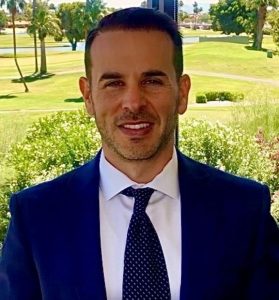 Shalev Amar is the Founder and Manager of Amar Law Group. Prior to founding Amar Law Group, Mr. Amar was a Managing Partner for twelve years of a consumer law firm that exclusively handled motor vehicle claims on behalf of consumers. Since 2004, Mr. Amar has successfully litigated and/or settled over 1,533 Lemon Law and breach of warranty claims with motor vehicle and RV manufacturers. Additionally, his current and predecessor law firms have handled over 4,267 Lemon Law cases.
Shalev Amar is the Founder and Manager of Amar Law Group. Prior to founding Amar Law Group, Mr. Amar was a Managing Partner for twelve years of a consumer law firm that exclusively handled motor vehicle claims on behalf of consumers. Since 2004, Mr. Amar has successfully litigated and/or settled over 1,533 Lemon Law and breach of warranty claims with motor vehicle and RV manufacturers. Additionally, his current and predecessor law firms have handled over 4,267 Lemon Law cases.
This extensive experience is the basis for the 4 Free Consumer Awareness Guides Mr. Amar has authored to help educate consumers about Lemon Law questions to ask and pitfalls to avoid. The guides are called: How to Avoid Four Lemon Law Rip-Offs, Six Costly Misconceptions About Lemon Law Claims, Eight Mistakes to Avoid When Pursuing a Lemon Law Claim, and Seven Questions to Ask a Lemon Law Firm About Potential Representation.
